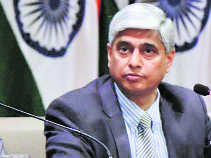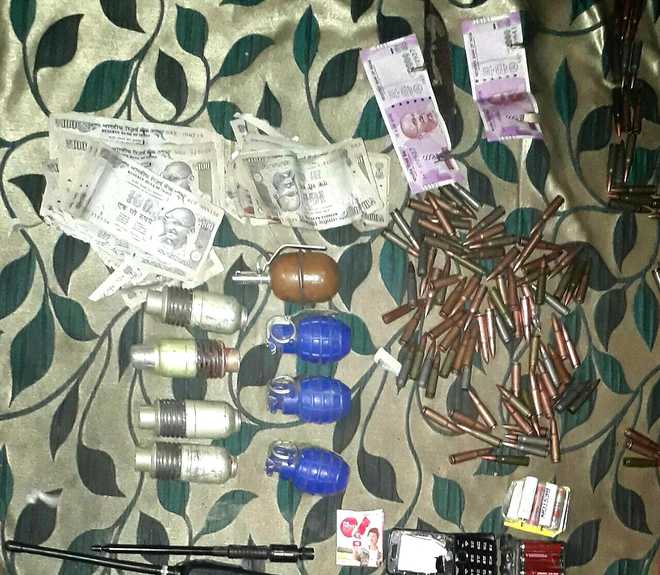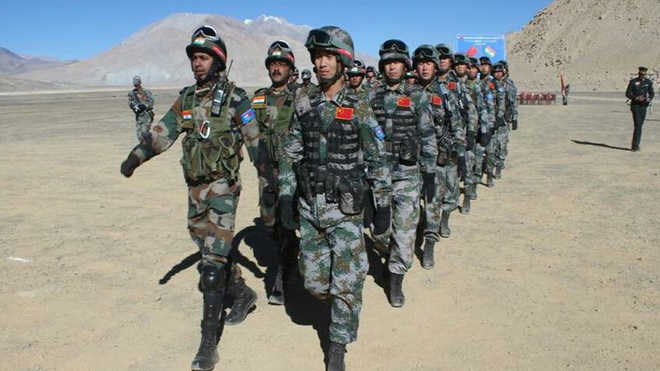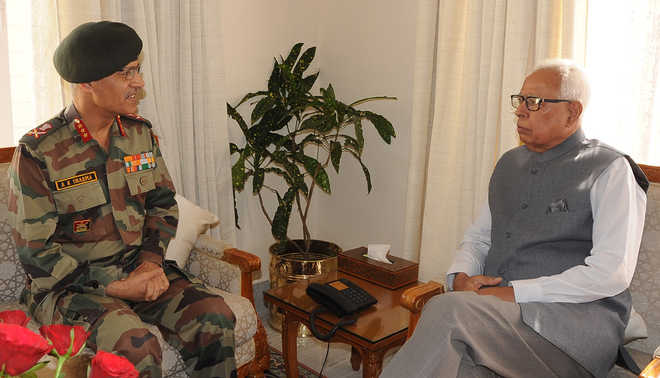Soldiers along the Line of control are in the thick of a nervewracking battle after the surgical strikes in september altered the rules of the game. Hindustan Times spent time with army troops on the border to understand the challenges the men are up aga
THE SOLDIER WILL HAVE TO STAND AT HIS POST AS THE SNOWS PILE UP TO 20 AND 30 FEET AND TEMPERATURES FALL TO MINUS 20. EACH POST IS CUT OFF FROM THE OTHER FROM OCTOBER TO FEBRUARY…
Imagine standing at attention for a full 120 minutes. Imagine scanning the ridges and valleys, looking for trees that may have been cut overnight. Imagine straining your ears each time the leaves rustle. Imagine being glued to an automatic weapon, finger constantly on the trigger. Imagine an icy wind sweeping your face and the snow collecting at your feet. Imagine a life constantly on the edge.

Soldiers along the 740-km Line of Control (LoC), that demarcates India and Pakistan, are in the thick of a nerve-wracking battle. The surgical strikes following the suicide attack on an army camp in Uri on September 18 that killed 20 soldiers have drastically altered the rules of the game. The ceasefire agreement of 2003 is in tatters and the daily dose of mortar and artillery fire, have the jawans on their toes.
Lives are now on the line, by day and by night. The LoC is not an easy place to get to but HT got permission to go to the forward posts. The first briefing by Colonel MB Singh, commanding officer, 20 Rashtriya Rifles, left little room for doubt. “The place where you’re standing is within enemy range and can be pounded. In case that happens, you need to take shelter,’’ he said, pointing to his right, where sandbags cover an underground bunker. His men know the drill. Bunkers have come up next to every post and that’s the only safe place, provided you have the time to respond and run. Six to eight soldiers can crouch for safety in freshly-made bunkers that have been constructed after the surgical strikes on September 29.
Safety, however, is one thing that is not guaranteed. The soldiers, who are on full alert for 120 minutes, after which they rest their taut nerves for the next two hours, are now not just looking for infiltrating terrorists. They are also guarding against sniper attacks from Pakistani rangers and the battle action teams (BATs) comprising jihadis from the Lashkar-e-Taiba and the Jaish-e-Mohammad. In the unequal proxy war that has become sharp and intense, leaves have been curtailed and commanding officers are up all night and in constant touch with their company commanders. Leading from the front in the time of escadetect, lation and ‘near-war’ – as one officer put it – is of utmost importance.
A NEW NORMAL
India cannot afford a breach along the LoC or along the 221-km stretch of the international border between Jammu and Kashmir and Pakistan. The bloody attack in Uri in September and the audacious three-day stand-off at the air force base in Pathankot in January are painful reminders of what a breach can result in. “We now constantly practise anti-fidayeen and counter BAT drills,’’ says Bhaskar Kataria, commanding officer, 19 Maratha. His unit is responsible for roughly 38 km of the LoC but even though his posts are ‘’dominating Pakistan’’ because they are at a higher height, that’s not solace enough. His troops get a daily reminder of what DIE stands for: identify, eliminate. The identification is of utmost importance. In the dead of night – when the troops have to be on maximum alert – the danger of shooting one of your own has to be factored in and the orders are strict: do not fire till you have established the identity of a militant with a weapon.
In the precipitous heights that range from 9,000 to 14,000 feet, danger is manifold. Up until the attack in Uri, the army could monitor infiltration routes selectively and focus on areas identified through surveillance radars and intelligence inputs but the surgical strikes on ‘launch pads’ (areas where the Pakistani army keeps trained terrorists just before they’re pushed across the LoC into India) have also changed the vocabulary of the officers tasked with guarding the line once referred to as ‘the most dangerous place on earth’ by former US President Bill Clinton.
“We are dealing with a ‘new normal’,’’ one officer tells us. What’s the ‘new normal?’ we ask. The answer is as simple as it is stark. It is visible on a daily basis: killing of civilians (eight in a single day on November 1), heavy mortar shells whistling through the treacherous mountains, scaring civilians into migrating, artillery pounding of each other’s positions, stealth attacks that leave soldiers’ bodies mutilated.
After the ceasefire in 2003, the Indian army was able to fence large parts of the Line of Control. Attempts at putting up the anti-infiltration obstacle system (AIOS) were made earlier too but were met with constant firing from Pakistan. The rolls of concertina wire that make up this fence had helped bring infiltration levels down but the figures are spiking once again. Determined and highly-motivated terrorists are attempting to cross the line again and 2016 has already seen 70 attempts (up to September) as compared to 30 in 2015. “The fence is constantly under the gaze. It cannot be protected at every step but the troops return to the same spot, under their guard, every 30 minutes, to see if anyone has attempted to cut it,” an officer explains.
But scores of Indian posts lie ahead of the fence and these are extremely vulnerable. Sepoy Mandeep Singh, the young 28-year-old jawan whose body was mutilated, was at one such location when he came under attack from the battle action teams on October 28. Officials privy to the attack say – but only off the record – that he was beheaded just like Hemraj was three years ago, in the Poonch sector. The BATs retreated as quickly and stealthily as they had entered, secure that their masters in the Pakistani army would help them by providing cover fire. In a similar action, five days earlier, Surat Singh, from 22 Grenadiers, was amongst those who noticed some movement in the bushes. Was it a Pakistani infiltrator or a panther? That’s a question they have to contend with often. Soon, Singh saw infiltrators coming towards them with grenade launchers. He was hit by shrapnel and fell to the ground.
The border is at its most volatile. India has shrugged off its self-imposed restriction of opening up its artillery weapons and the verbal messaging from the political masters is unambiguous: fire ten mortars in return for one; don’t ask for flag meetings to lower tensions.
MULTIPLE ENEMIES
The surgical strikes, owned politically by the Narendra Modi government, have buoyed the troops on the ground but unlike the past, the officers know that this winter is going to be a turbulent one. Heavy snowfall makes for a formidable trek across the LoC but admits Lt Gen Satish Dua, Corps Commander, 15 Corps, “We expect a more difficult winter because of the heightened state of alert after the surgical strikes and are prepared for any misadventure from Pakistan.”
A heightened state of alert through the winter is a mind-boggling exercise, unimaginable till you visit the forward posts. The ridges were covered with snow in the last week of October and the temperatures had dipped to minus six degrees Celsius. And that’s just the beginning. The soldier will have to stand at his post as the snows slowly pile up to 20 and 30 feet and temperatures fall to minus 20. Each post is cut off from the other from October to February and each has to be stocked with enough ration and fuel so that the jawans can sustain themselves. For those who need to move, ropes are tied to winter route markers to help them slither to and fro. “We are fighting more than one enemy,’’ says Kataria. Twenty RR’s Singh adds, “Each soldier needs 2.3 kg of ration and while earlier we could stock by day, this time we are doing it after light fades so we are not visible to the enemy.’’
Soon, the platoon hawaldar will also be checking the feet of each solider to ensure he’s not showing early signs of chilblains. But as the days shrink, the nights become longer and the infiltrators prepare to infiltrate in snow suits, the most challenging of all is casualty evacuation. It is difficult for helicopters to land in thick fog and snow blizzards but the injured must be rushed. Surat Singh, injured by splinters, was carried on the shoulders of his colleagues because the ‘hepter’ couldn’t make it despite the pilot’s best attempts.
Lives are on the line and there is little room for leisure. Brigadier Zubin A Minwalla in Kupwara’s Pharkian Gali area had organised a cake-cutting for one of his officers, Vaibhav Fauzdar’s wedding anniversary. Before they could gather at 5pm, came news of Surat’s injury and the news that the infiltrators had managed to flee.



On the Line of Control, birthdays and anniversaries can provide a few minutes of relief and motivation, if at all. Too much is at stake. The beauty of the white mountains is treacherous. The snowcapped heights belie the daily battle of life and death


















































































































